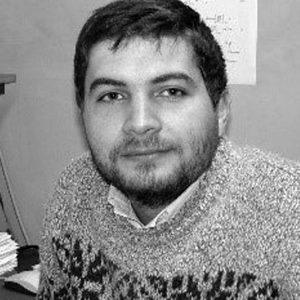Summary
BlueEnergy proposed to develop the first hybrid energy harvesting system to be installed in the ocean and enable the long-term deployment of Autonomous Underwater Vehicles. Such an achievement was expected to foster the continuous monitoring of environmental and human activities in remote oceanic locations, a key objective of the Azores International Research Center.
Two recent complementary developments motivated the project’s ambitious goal. The first is the realization of triboelectric nanogenerators (TENGs), a novel technology that can efficiently harvest low amplitude, low frequency wave energy. This marks a rupture from present wave farms based on low performance electromagnetic generators. The triboelectric effect is related with the build-up of static charges when two materials are rubbed together. By contacting and separating materials with oppositely charged surfaces, power densities above 500 W/m2 can be generated. The second is the discovery that motheye structures (arrays of vertical nanopillars), besides functioning as broad- spectrum, omnidirectional antireflective surfaces that increase the performance of photovoltaic cells by over 1.5x, also result in a high degree of hydrophobicity.
This exploratory project, which highlighted emerging areas of interest in micro- and nanomaterial transport phenomena, including spintronics, represents an important first step towards the implementation of large networks of hybrid generators to act as distributed power sources autonomous Ocean technology.
| Title | Large scale blue energy harvesting using hybrid triboelectric/photovoltaic systems for the long term deployment of Autonomous Underwater Vehicles |
| Reference | UTAP-EXPL/NTec/0021/2017 |
| Scientific Area | Nanotechnologies |
| Funding | € 99 737,00 plus matched funding at UT Austin |
| Leading Institution | Faculdade de Ciências da Universidade do Porto (FCUP) |
| Participating Institutions | The University of Austin at Texas (UT Austin) Instituto de Engenharia de Sistemas e Computadores, Tecnologia e Ciência (INESC TEC) |
| Duration | 18 months |
| Begin date | October 1, 2018 |
| End date | March 31, 2020 |
| Keywords | Energy Harvesting, Triboelectric Nanogenerators, Solar Energy, Autonomous Underwater Vehicles |
Main Highlights
- Enhanced and scalable triboelectric materials to be used in salt water environments by functionalizing and texturing their contact surfaces using nano-patterns;
- Photovoltaic modules involving nanostructured motheye glass packaging that are corrosion-resistant, hydrophobic and self-cleaning;
- Power conditioning electronics and dedicated power management systems able to cope with these energy harvesting technologies involving novel TENG prototypes generating electrical energy from wave motion;
- One book to be published by Elsevier: Transport phenomena in micro and nanoscale functional materials and devices, J. B. Sousa, J. Ventura, A. M. Pereira.
Indicators
- 5 Published papers in peer-reviewed Journals and Conferences;
- 1 Book accepted for publication;
- 2 PhDs, 3 MSc. and 4 Undergraduate students involved in research work;
- 3 Scientific events organized;
- 2 Prototypes: Dry bench testing system and Bluetooth datalogger.
Papers and Communications
- Rodrigues, C., Ramos, M., Esteves, R., Correia, J., Clemente, D., Gonçalves, F., Mathias, N., Gomes, M., Silva, J., Duarte, C., Morais, T., Rosa-Santos, P., Taveira-Pinto, F., Pereira, A., & Ventura, J. (2021). Integrated study of triboelectric nanogenerator for ocean wave energy harvesting: Performance assessment in realistic sea conditions. In Nano Energy (Vol. 84, p. 105890). Elsevier BV. https://doi.org/10.1016/j.nanoen.2021.105890
- Transport phenomena in micro and nanoscale functional materials and devices, J. B. Sousa, J. Ventura, A. M. Pereira., Elsevier (2021).
- Rodrigues, C., Nunes, D., Clemente, D., Mathias, N., Correia, J. M., Rosa-Santos, P., Taveira-Pinto, F., Morais, T., Pereira, A., & Ventura, J. (2020). Emerging triboelectric nanogenerators for ocean wave energy harvesting: state of the art and future perspectives. Energy & Environmental Science, 13(9), 2657–2683. https://doi.org/10.1039/d0ee01258k
- Cossio, G., & Yu, E. T. (2020). Zeta Potential Dependent Self-Assembly for Very Large Area Nanosphere Lithography. Nano Letters, 20(7), 5090–5096. https://doi.org/10.1021/acs.nanolett.0c01277
- Rodrigues, C., Kumar, M., Proenca, M. P., Gutierrez, J., Melo, R., Pereira, A., & Ventura, J. (2020). Triboelectric energy harvesting in harsh conditions: Temperature and pressure effects in methane and crude oil environments. Nano Energy, 72, 104682. https://doi.org/10.1016/j.nanoen.2020.104682
- Rodrigues, C., Gomes, A., Ghosh, A., Pereira, A., & Ventura, J. (2019). Power-generating footwear based on a triboelectric-electromagnetic-piezoelectric hybrid nanogenerator. Nano Energy, 62, 660–666. https://doi.org/10.1016/j.nanoen.2019.05.063
- Esteves, R., Rodrigues, C., Ventura, J., Pereira, A., Duarte, C., Correia, V., & Pessoa, L. (2019, June). Experimental Evaluation of TENGs for Energy Harvesting in Maritime Applications. OCEANS 2019 – Marseille. OCEANS 2019 – Marseille. https://doi.org/10.1109/oceanse.2019.8867376
Project Team
João Ventura
BlueEnergy
Edward Yu
BlueEnergy


